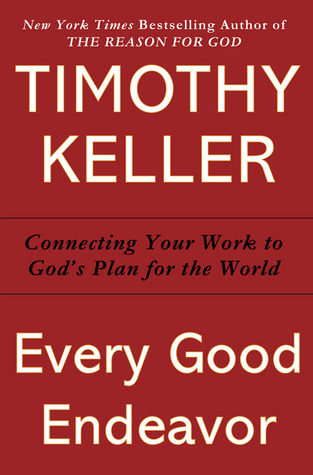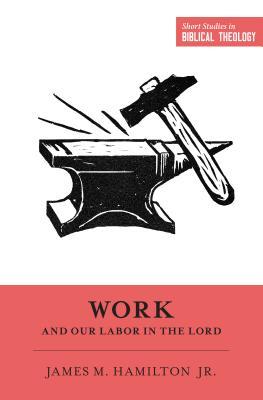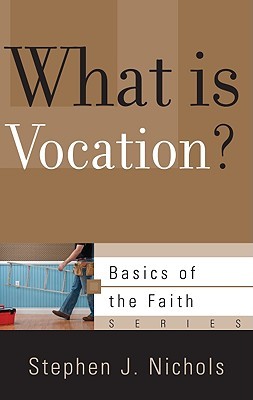Posted in biblical worldview, Book Review, career, Christianity, Common Grace, Gospel, Reformed, Theology, Timothy Keller, worldview, tagged Work on August 21, 2013|
4 Comments »

Purchase: Westminster | Amazon
This works explore the Gospel implication towards the area of work and career. I wish there were more books on work from a Christian perspective that’s Gospel driven. While Tim Keller doesn’t answer everything concerning a Christian view of work, the book does manage to do a good job of laying down the foundation of a Christian view of work—and as a result this book was better than I originally expected. I appreciated Keller’s consciousness of worldviews—and worldviews as meta-narratives. If one’s foundational presuppositions (what Keller calls “first order beliefs”) is off, then it would definitely lead to practical problems concerning work and employment. The book is divided into three section—God’s plan for work, our problem with work and the Gospel and Work. The conscious reader will noticed this three fold division of the book reflects the Christian Creation, Fall Redemption motif. This is definitely a reflection of Keller’s attempt to address the issue of work from the Gospel. I thought the book was nuance enough to deal with some of the complexity of work in today’s sin-saturated world: Keller is careful enough in his work to make sure a Christian view of work doesn’t make one self-righteous, thinking they are necessarily better than non-believers at work. Bringing the Reformed doctrine of Common Grace, he accounts for why non-Christians can sometimes even do their work better than Christians! And this is true in spite of the destructive world views some people hold to. In addition, Keller pointed out that for the Christian we don’t work to be accepted but the Gospel declares we already accepted by God because our sins are atoned for by Jesus. Therefore, we are free from the shackles of self when we work because we now live to please God—there is no need to seek work and accomplishments at work as a form of salvation. Keller also noted how the reality of sin means our work will be frustrated in this side of eternity and that we should expect it—yet our eternity in heaven means we might finish some of our task that’s our deepest longing then. If one follows Keller’s footnotes you will definitely tell that he’s a man who reads much and quite diversely. I only have two criticisms of the book: The first being in chapter six his approach to the book of Ecclesiastes adopt the outlook and conclusion of theological liberals such as his belief that the book had two narrators, the book was not authored by Solomon and thereby the genre was a “fictional biography,” etc. I was surprised at his omission of any conservative arguments to the contrary. Secondly, in a section of chapter eight in which Keller was talking about the idols of Postmodern cultures, he writes that “ultimately postmodern thought makes an idol out of reality as it is” (145). I would disagree: I think postmodernity’s idol is not reality per se, but “perspectives” and “perceptions” of that reality, in which one can only get a “slice” of what is real, provided if we can know it depending on the particular Postmodernist. Postmodern’s theme that there is no objective knowledge given our participation in the process of knowing things slant it to idolize fragmenting knowledge into tribes such as Asian American, post-colonial, post-Christian, feminists perspective, etc.
Read Full Post »





